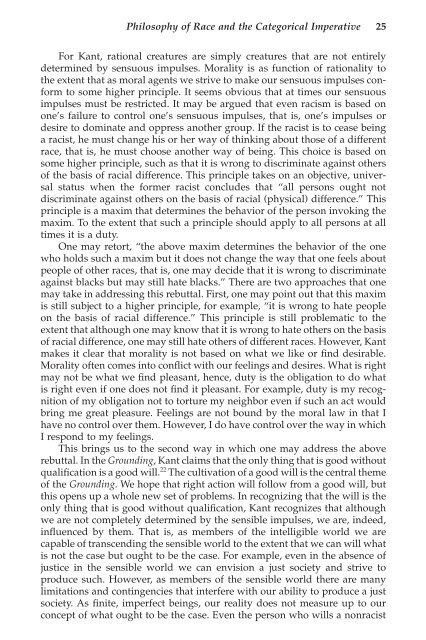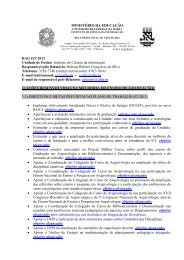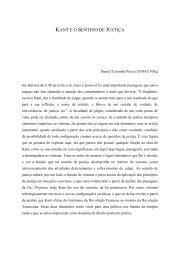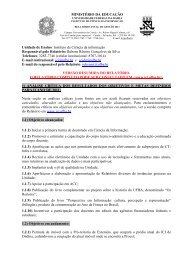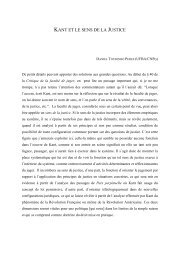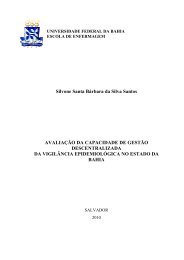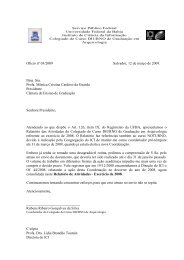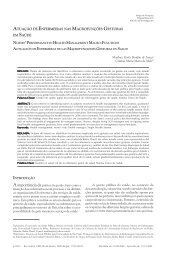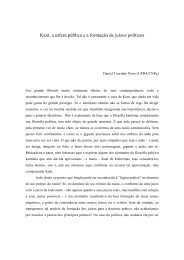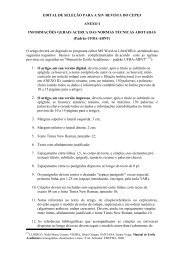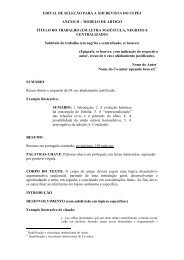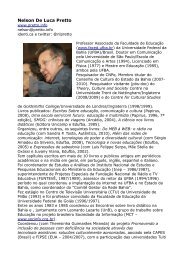Can a Philosophy of Race Afford to Abandon the Kantian ...
Can a Philosophy of Race Afford to Abandon the Kantian ...
Can a Philosophy of Race Afford to Abandon the Kantian ...
- No tags were found...
You also want an ePaper? Increase the reach of your titles
YUMPU automatically turns print PDFs into web optimized ePapers that Google loves.
<strong>Philosophy</strong> <strong>of</strong> <strong>Race</strong> and <strong>the</strong> Categorical Imperative 25For Kant, rational creatures are simply creatures that are not entirelydetermined by sensuous impulses. Morality is as function <strong>of</strong> rationality <strong>to</strong><strong>the</strong> extent that as moral agents we strive <strong>to</strong> make our sensuous impulses conform<strong>to</strong> some higher principle. It seems obvious that at times our sensuousimpulses must be restricted. It may be argued that even racism is based onone’s failure <strong>to</strong> control one’s sensuous impulses, that is, one’s impulses ordesire <strong>to</strong> dominate and oppress ano<strong>the</strong>r group. If <strong>the</strong> racist is <strong>to</strong> cease beinga racist, he must change his or her way <strong>of</strong> thinking about those <strong>of</strong> a differentrace, that is, he must choose ano<strong>the</strong>r way <strong>of</strong> being. This choice is based onsome higher principle, such as that it is wrong <strong>to</strong> discriminate against o<strong>the</strong>rs<strong>of</strong> <strong>the</strong> basis <strong>of</strong> racial difference. This principle takes on an objective, universalstatus when <strong>the</strong> former racist concludes that “all persons ought notdiscriminate against o<strong>the</strong>rs on <strong>the</strong> basis <strong>of</strong> racial (physical) difference.” Thisprinciple is a maxim that determines <strong>the</strong> behavior <strong>of</strong> <strong>the</strong> person invoking <strong>the</strong>maxim. To <strong>the</strong> extent that such a principle should apply <strong>to</strong> all persons at alltimes it is a duty.One may re<strong>to</strong>rt, “<strong>the</strong> above maxim determines <strong>the</strong> behavior <strong>of</strong> <strong>the</strong> onewho holds such a maxim but it does not change <strong>the</strong> way that one feels aboutpeople <strong>of</strong> o<strong>the</strong>r races, that is, one may decide that it is wrong <strong>to</strong> discriminateagainst blacks but may still hate blacks.” There are two approaches that onemay take in addressing this rebuttal. First, one may point out that this maximis still subject <strong>to</strong> a higher principle, for example, “it is wrong <strong>to</strong> hate peopleon <strong>the</strong> basis <strong>of</strong> racial difference.” This principle is still problematic <strong>to</strong> <strong>the</strong>extent that although one may know that it is wrong <strong>to</strong> hate o<strong>the</strong>rs on <strong>the</strong> basis<strong>of</strong> racial difference, one may still hate o<strong>the</strong>rs <strong>of</strong> different races. However, Kantmakes it clear that morality is not based on what we like or find desirable.Morality <strong>of</strong>ten comes in<strong>to</strong> conflict with our feelings and desires. What is rightmay not be what we find pleasant, hence, duty is <strong>the</strong> obligation <strong>to</strong> do whatis right even if one does not find it pleasant. For example, duty is my recognition<strong>of</strong> my obligation not <strong>to</strong> <strong>to</strong>rture my neighbor even if such an act wouldbring me great pleasure. Feelings are not bound by <strong>the</strong> moral law in that Ihave no control over <strong>the</strong>m. However, I do have control over <strong>the</strong> way in whichI respond <strong>to</strong> my feelings.This brings us <strong>to</strong> <strong>the</strong> second way in which one may address <strong>the</strong> aboverebuttal. In <strong>the</strong> Grounding, Kant claims that <strong>the</strong> only thing that is good withoutqualification is a good will. 22 The cultivation <strong>of</strong> a good will is <strong>the</strong> central <strong>the</strong>me<strong>of</strong> <strong>the</strong> Grounding. We hope that right action will follow from a good will, butthis opens up a whole new set <strong>of</strong> problems. In recognizing that <strong>the</strong> will is <strong>the</strong>only thing that is good without qualification, Kant recognizes that althoughwe are not completely determined by <strong>the</strong> sensible impulses, we are, indeed,influenced by <strong>the</strong>m. That is, as members <strong>of</strong> <strong>the</strong> intelligible world we arecapable <strong>of</strong> transcending <strong>the</strong> sensible world <strong>to</strong> <strong>the</strong> extent that we can will whatis not <strong>the</strong> case but ought <strong>to</strong> be <strong>the</strong> case. For example, even in <strong>the</strong> absence <strong>of</strong>justice in <strong>the</strong> sensible world we can envision a just society and strive <strong>to</strong>produce such. However, as members <strong>of</strong> <strong>the</strong> sensible world <strong>the</strong>re are manylimitations and contingencies that interfere with our ability <strong>to</strong> produce a justsociety. As finite, imperfect beings, our reality does not measure up <strong>to</strong> ourconcept <strong>of</strong> what ought <strong>to</strong> be <strong>the</strong> case. Even <strong>the</strong> person who wills a nonracist


